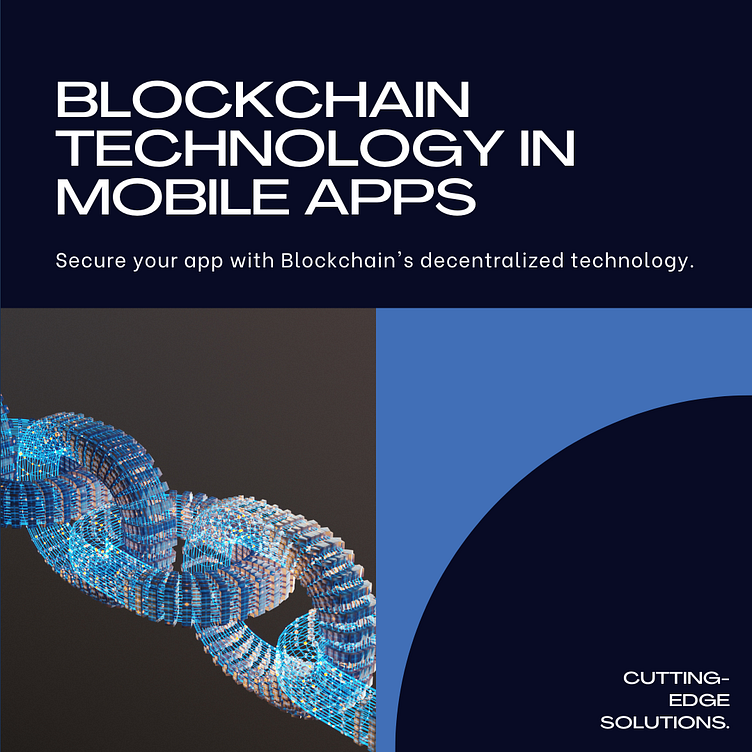The Role of Blockchain in Mobile App Development:
Blockchain technology has emerged as a revolutionary force across various industries, and its integration into mobile app development brings forth several benefits and opportunities. Here are some key roles that blockchain plays in mobile app development:
Security Enhancement: Blockchain offers enhanced security through its decentralized and immutable nature. Mobile apps leveraging blockchain can ensure secure data storage and transmission, reducing the risk of data breaches and unauthorized access. With features like cryptographic hashing and consensus mechanisms, blockchain enhances the integrity and confidentiality of user data.
Transparent Transactions: Blockchain facilitates transparent and tamper-proof transactions by recording every transaction in a distributed ledger accessible to all parties involved. Mobile apps utilizing blockchain can enable transparent financial transactions, supply chain tracking, voting systems, and more, fostering trust and accountability among users.
Decentralized Apps (DApps): Blockchain enables the development of decentralized applications (DApps), which operate on a peer-to-peer network without the need for intermediaries. Mobile app developers can leverage blockchain platforms like Ethereum or EOS to create DApps that offer various functionalities, such as decentralized finance (DeFi), gaming, social networking, and more.
Smart Contracts: Smart contracts are self-executing contracts with the terms of the agreement directly written into code. Blockchain-powered mobile apps can utilize smart contracts to automate and enforce agreements between parties, eliminating the need for intermediaries and reducing transaction costs. Smart contracts find applications in various sectors, including real estate, insurance, supply chain management, and legal services.
Tokenization and Monetization: Blockchain enables tokenization, where real-world assets or digital assets are represented by tokens on a blockchain. Mobile apps can leverage tokenization to create new revenue streams by offering tokenized assets, rewards, or digital currencies within the app ecosystem. This opens up opportunities for innovative business models, such as token-based loyalty programs, in-app purchases, and decentralized finance protocols.
Identity Management: Blockchain-based identity management solutions offer users greater control over their digital identities while ensuring privacy and security. Mobile apps can integrate blockchain-based identity verification mechanisms to authenticate users securely and manage access to sensitive information without relying on centralized identity providers. This approach enhances user privacy and reduces the risk of identity theft and fraud.
Supply Chain Traceability: Blockchain facilitates supply chain traceability by recording the journey of products from their origin to the end consumer. Mobile apps can leverage blockchain to provide consumers with real-time visibility into the supply chain, ensuring product authenticity, quality assurance, and ethical sourcing practices. This enhances consumer trust and brand reputation while mitigating risks associated with counterfeit goods and supply chain inefficiencies.
In conclusion, blockchain technology plays a crucial role in revolutionizing mobile app development by offering enhanced security, transparency, decentralization, automation, and new monetization opportunities. Integrating blockchain into mobile apps opens up a wide range of possibilities for creating innovative solutions across various industries.
